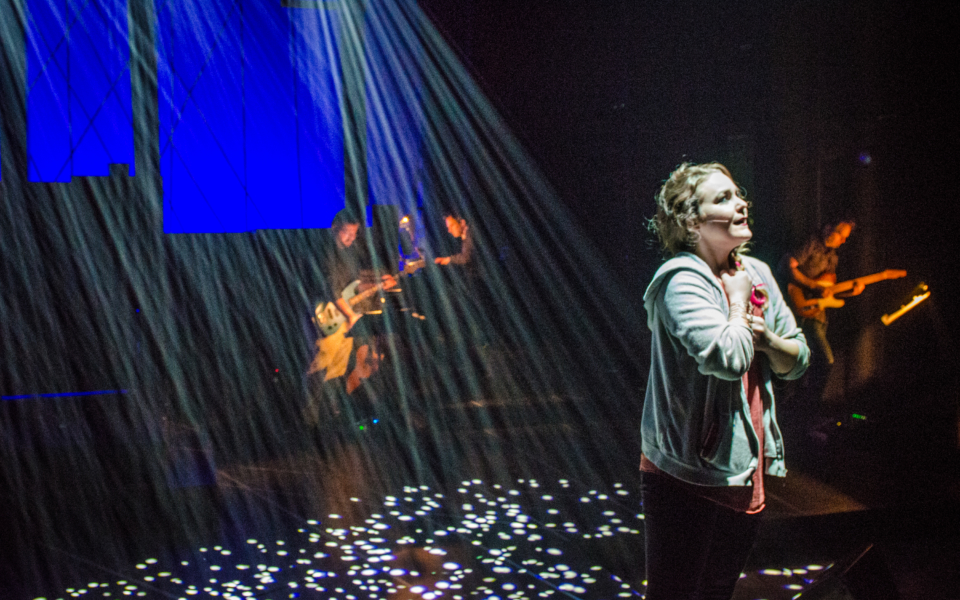You can now mount your own production of ISLAND SONG through Broadway Licensing! This kinetic, off-beat ensemble show is ideal for theaters looking to produce more intimate productions with flexible production designs.
Flexible cast sizes of 5-15+ make ISLAND SONG ideal for professional theaters, colleges, high schools, and community theater groups alike. Check out the small cast, medium cast, and large cast editions. Each offers a great way to feature all ensemble members. Check out See below for more info and FAQs!
words and music by Sam Carner and Derek Gregor
story by Sam Carner, Derek Gregor, and Marlo Hunter
conceived with Laura Pietropinto
The Album
Check out the ISLAND SONG studio cast album starring Jeremy Jordan, Jackie Burns, Kimiko Glenn, Lilli Cooper, and Troy Iwata, with a bonus track by Natalie Weiss! It’s available for free right here (see above) and on Spotify and other streaming platforms.
Three Versions
In addition to the small-cast 5-person version of the show (as featured on the album), we also have a 8-12-person medium cast version and a 13+ version for larger groups. All versions are extremely flexible in terms of production design and can be simple or involved as your company desires. Moreover, each version comes with a High-School friendly adaptation, offering alternatives to the more adult content.
Synopsis
A poignant, off-beat dramedy with a kinetic pop-rock score (boasting 9 MAC-nominated songs), ISLAND SONG takes us through a year in the lives of five twenty-and-thirty-somethings sharing a city and the chain of surprising, poignant, and partially random connections that bring them into each other’s spheres at moments that become pivotal. As the city pulses around them, they all must work through their own complex relationships with ambition, distraction, and the search for connection.
Production History
ISLAND SONG premiered at the Adirondack Theatre Festival in 2016 (directed and choreographed by Marlo Hunter, musical direction by Vadim Feichtner). Since then, it has had over 60 productions in venues around the world, including Stratford Circus, the Chelsea Theatre and the St. James Studio in London, Comedie Nation in Paris, the Bloomington Playwrights Project, Princeton University, Oakland University, the University of Michigan, Western Carolina University, (le) Poisson Rouge in New York City, Crawfish in Tokyo, and many more.
Videos
Licensing
To mount your own production of ISLAND SONG, reach out to Broadway Licensing, or email us, and we’ll get right back to you!



